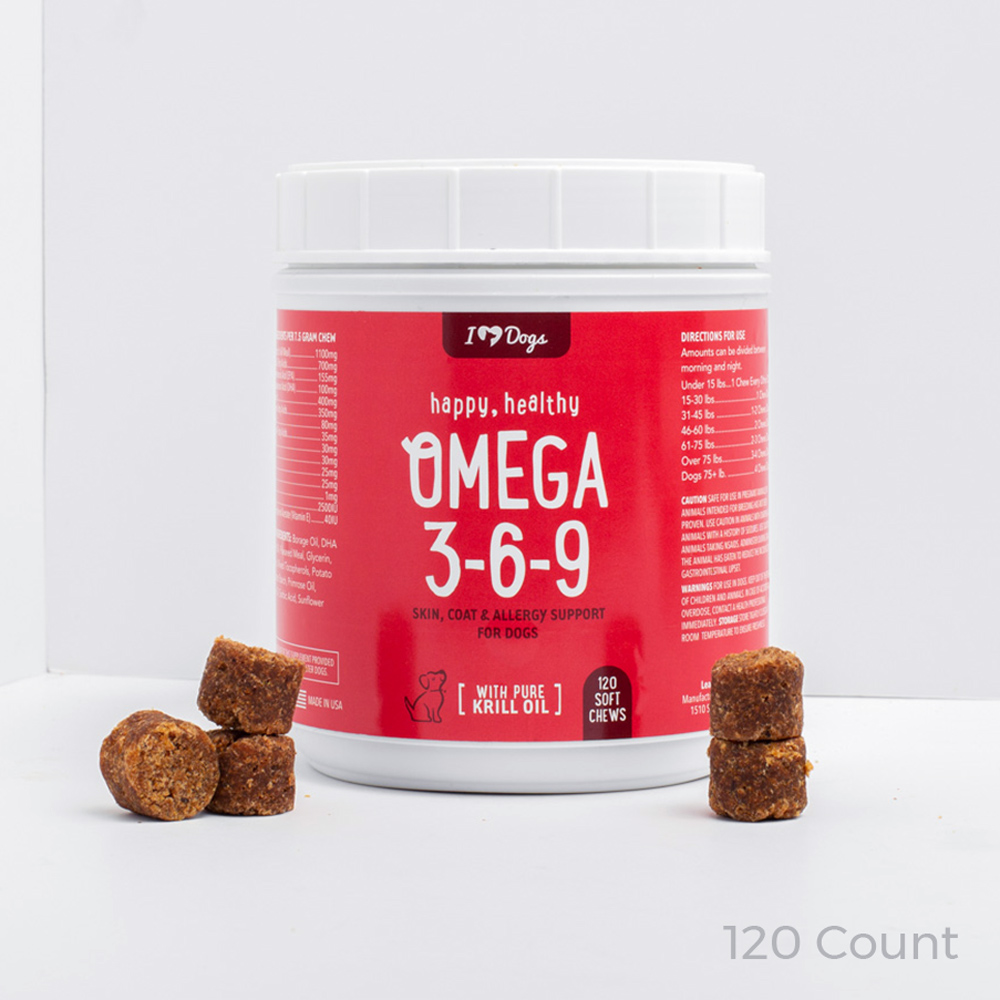Do Dogs Get Dry Skin In The Winter?
Dry winter skin & allergies are a common problem among dogs. Owners and veterinarians alike are constantly fighting to make dogs more comfortable. Dogs, like people, can be allergic to just about anything, from their food to the environment. While there are many different medications to help deal with dry skin & allergy symptoms, many of us prefer to go a more natural route first to make sure we’ve tried all of the safest options. Always consult with your veterinarian before giving your dog any treatments or supplements, but if you’re looking to try some natural dry skin remedies, consider these.
How To Help Dog Dry Skin In Winter Time
#1 – Proper Bathing & Grooming
This might not seem like a “natural” remedy, but if your dog suffers from environmental allergies, frequent bathing and grooming is going to offer much needed comfort. Using soothing ingredients such as oatmeal in the shampoos will help your dog’s skin feel softer and will relieve the itching they feel. Depending on the severity of your dog’s allergies, bathing once a week will greatly improve your dog’s condition. Brushing and combing will also help remove dead skin and coat, promoting new growth and removing allergens on top of the skin and fur.
#2 – Feed a Wholesome Diet
Your dog’s diet might be completely overlooked if your dog only suffers environmental allergens. But the more natural your dog’s diet, the better their bodies are able to fight off and heal from allergies and external stressors. If your dog is allergic to certain ingredients, you’ll want to avoid those ingredients and replace them with something else. Grain-free diets are highly recommended for dogs with any type of allergy (or no allergy at all!) but if this isn’t possible, consider feeding organic, whole grains. The better your dog’s nutrition, the better their overall health and their ability to fight off allergens.
Note that if your dog is currently eating exclusively dry dog food (kibble) there is a very good chance they are not getting enough Omega-3 fatty acids in their diet. See point #6 below.
#3 – Try Apple Cider Vinegar
Organic, raw, unfiltered apple cider offers many benefits to dogs suffering from allergies. If your dog has hot spots or itchy skin, you can apply a 50/50 solution of apple cider vinegar and water to your dog. Put the solution in a spray bottle for easy use. This same spray will help repel fleas and ticks – a common allergen for many dogs. You can also use it to clean out your dog’s ears. The acidity of the mixture makes for an environment that yeast can’t live in – and yeast infections are typically caused by allergies. Make sure that the acidity isn’t too strong for your dog – some prefer a different mixture than the 50/50 suggested.
#4 – Manage Heat & Moisture
Your dog’s environment plays a large role in the health of their skin. Be sure to keep your home appropriately cooled and use a humidifier in dry conditions. When grooming, avoid using a high heat blow dryer, which might be faster but wreaks havoc on your dog’s sensitive skin.
Make sure your dog always has access to fresh, filtered water. Dogs on a dry kibble diet are in need of more moisture in their diets than dogs that eat a home-cooked, raw, or wet food diet.
#5 – Consider Applying Calendula To Dry Dog Skin
Calendula is a member of the sunflower family and offers several benefits to dogs with allergies. Either made into a tea or gel, applying calendula to your dog’s skin will help relieve inflammation from allergies. It also has natural anti-fungal and anti-yeast properties. It also helps improve your dog’s immune system when taken internally, so consider this as an allergy treatment as well.
#6 – Add Omega Fatty Acids Supplementation
Omega fatty acids are extremely beneficial to dogs with dry skin & allergies. These oils help improve your dog’s skin and coat by keeping the natural oils present in healthy amounts. Omegas also work as anti-inflammatories and greatly reduce the intensity of allergens. There are many Omega fatty acid supplements on the market, and you’ll want to look for something that works quickly to support a soft, silky coat, minimize normal shedding, and maintain the skin’s normal moisture content, such as Happy, Healthy Omega-3-6-9 Select soft chews.
Learn More About Our Omega-3 Skin & Coat Support Chews
These statements have not been evaluated by the Food and Drug Administration. This product is not intended to diagnose, treat, cure, or prevent any disease. The information on this website is not intended to replace a one-on-one relationship with a qualified health care professional.




 Toledo, United States.
Toledo, United States.